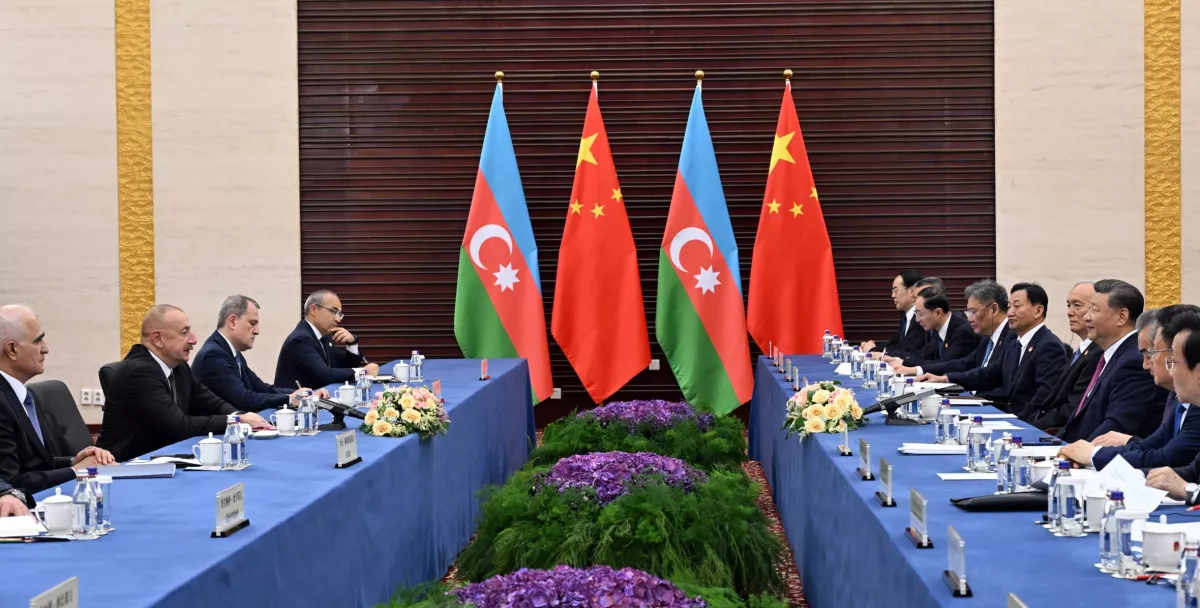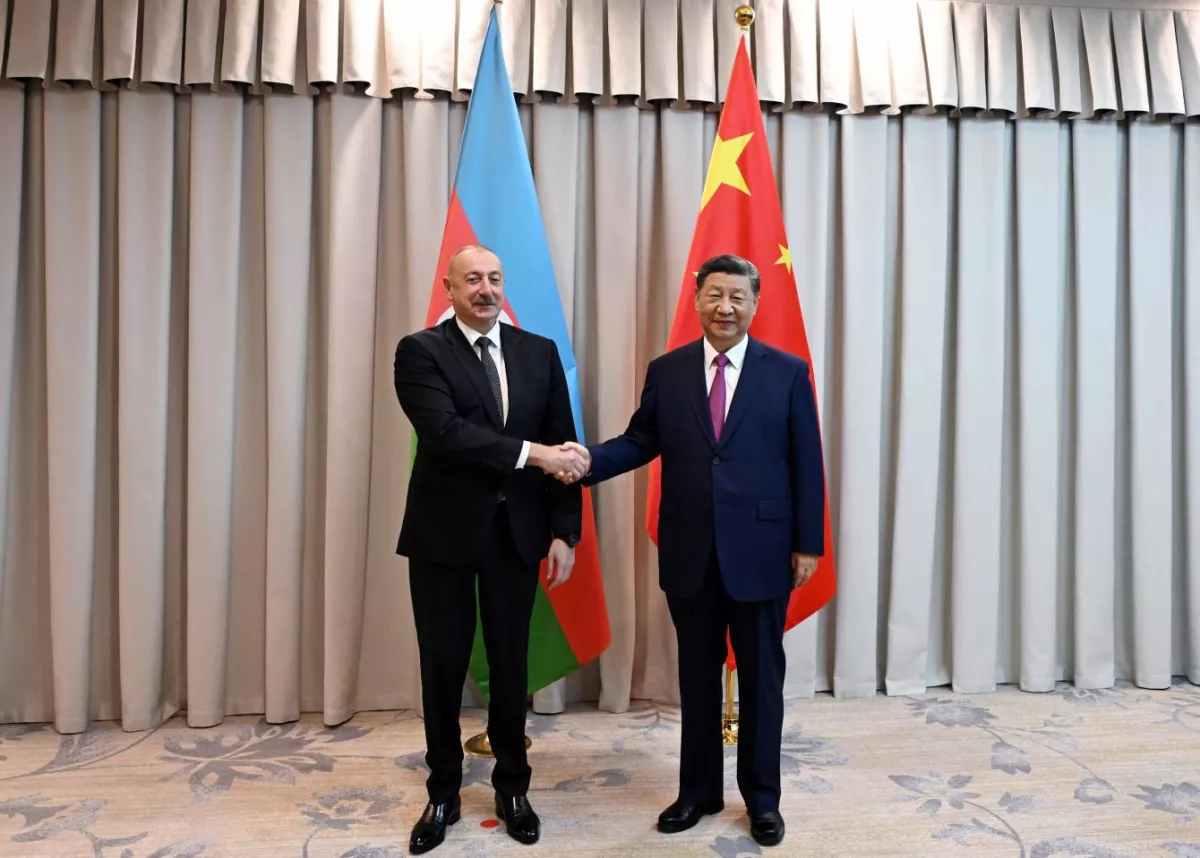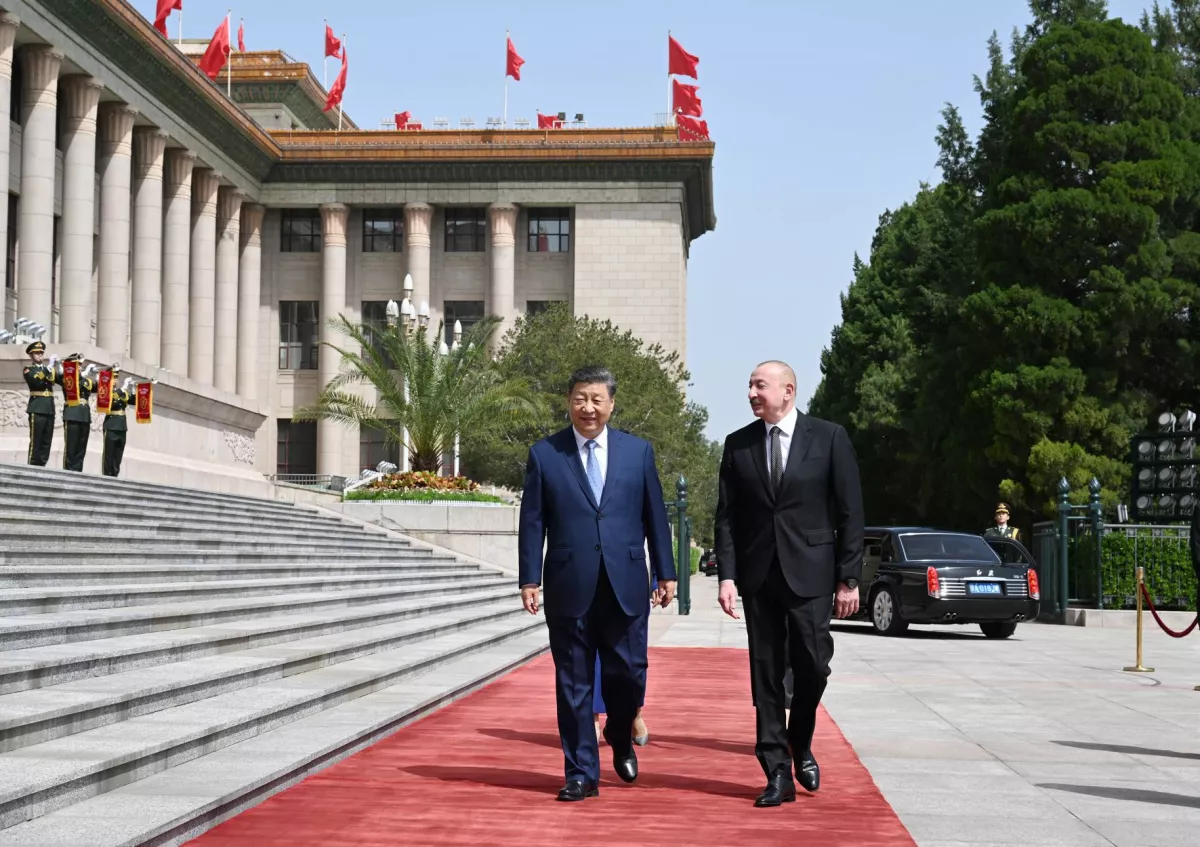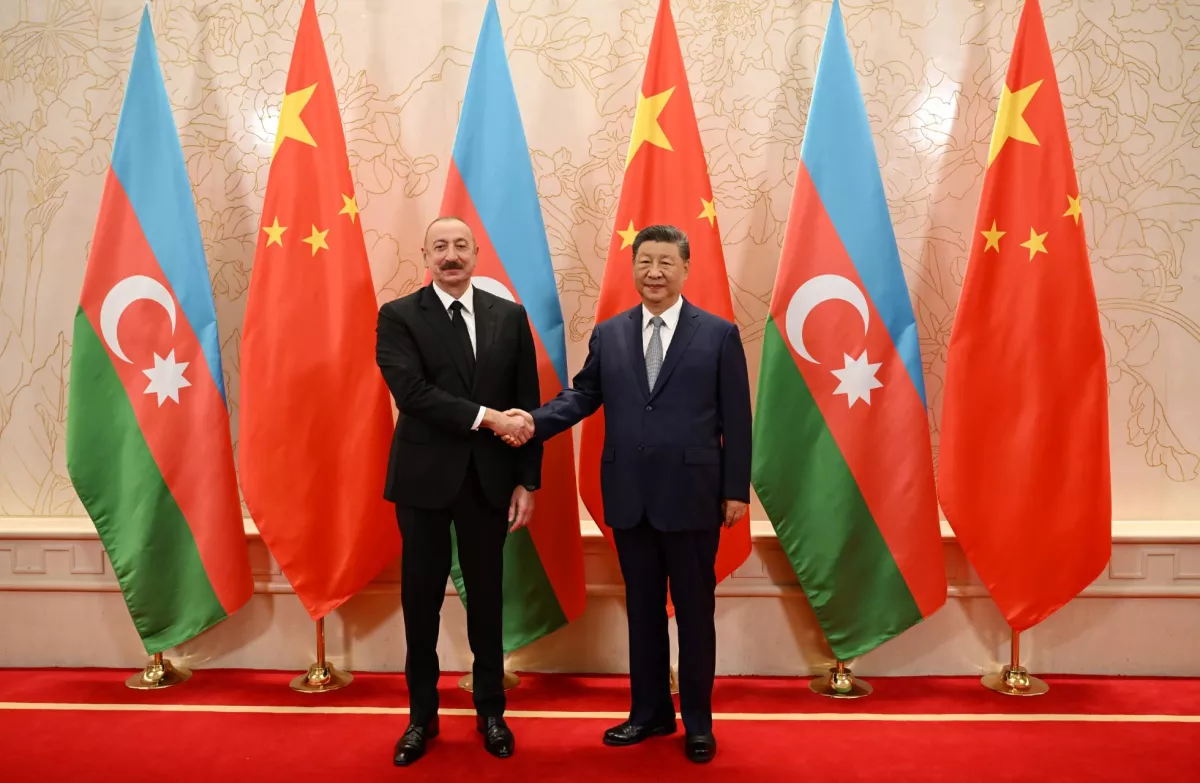Azerbaijan – SCO: A multifaceted partnership with distinct perspectives Bridging regions, shaping futures
The working visit of Azerbaijani President Ilham Aliyev to China, undertaken at the invitation of Chinese President Xi Jinping and including his participation in the SCO summit, clearly demonstrates the significant international standing of our country. The foundation of this geopolitical success was laid by the national leader, Heydar Aliyev, who, in his 1993 inaugural address, emphasised that Azerbaijan’s foreign policy must primarily aim to safeguard the country’s independence. He identified the key task as building equal and mutually beneficial relations with all states, effectively leveraging them both to strengthen Azerbaijan’s international position and to promote the development of its economy, science, and culture.
President Ilham Aliyev has been advancing this course on the international stage with meticulous diplomacy, clearly adhering to an ideology of multidimensional engagement in foreign policy. Evidence of this can be seen, in particular, in Azerbaijan’s involvement with the SCO and in the development of Azerbaijani-Chinese relations.

In this context, it is worth noting that at the previous SCO summit in Astana, the countries adopted the “Joint Declaration on the Establishment of a Strategic Partnership.” It was at that time that Xi Jinping invited Ilham Aliyev both to undertake a state visit to China and to participate in the current SCO summit—whose scale, if one may put it this way, is truly impressive. The organisation includes countries covering nearly 60% of Eurasian territory. Even more striking are the figures in terms of population and economy: the SCO unites 40% of the world’s population and accounts for 25% of global GDP.
The current SCO summit, in which China undoubtedly plays the leading role, has become the largest since the organisation’s founding, with leaders of more than 20 countries and heads of 10 international organisations participating. This is understandable, as the SCO has proven itself to be a serious platform for cooperation, both in terms of regional security and stability and in the pursuit of shared development. In a world marked by ongoing global turbulence and disruptions to traditional transport and logistics routes, the SCO stands out as an organisation aligned with the demands of the times, emphasising development, mutual understanding, and reciprocal benefits.
As of today, Azerbaijan holds the status of a Dialogue Partner of the SCO, a designation it received in 2016. However, Baku’s significance to the organisation extends far beyond the notion of a “partner.” This is due not only to Azerbaijan’s strategic geographic location, which makes it a key hub along the West-East and North-South corridors, but also to the country’s substantial achievements—such as its leadership in the Non-Aligned Movement and its role in hosting COP29. Azerbaijan’s regional leadership and status as a victorious nation are widely recognized, serving as a global example of achieving historical justice in full compliance with international law.
The rise in Azerbaijan’s international stature has also been reinforced by the outcomes of a recent trilateral meeting in Washington, where agreements were reached based on full recognition of all of Baku’s conditions, including the opening of all communications in the South Caucasus—most notably the Zangezur Corridor (also referred to as the “Trump Route” – TRIPP). This has highlighted Azerbaijan’s geopolitical role within China’s Belt and Road Initiative, especially since nearly all SCO participants are active members of this project.
In other words, Azerbaijan remains a key link on the Silk Road, just as it was many centuries ago. At the same time, the broader strategic picture is even more significant. Considering that SCO members include Kazakhstan, Kyrgyzstan, Uzbekistan, Tajikistan, and Pakistan, with Afghanistan as an observer, there are clear prospects for Azerbaijan and the Central Asian states to access the markets of East, South, and Southeast Asia using both land routes and seaports in Pakistan. From this perspective, both bilateral relations between Azerbaijan and these countries and multilateral regional agreements gain particular importance, anchored in the diverse transport, transit, and logistics potential of the country—enhanced by its modern infrastructure.

In this respect, during his speech at the 2024 SCO Summit in Astana, President Ilham Aliyev emphasised Azerbaijan’s significant investments in the Baku-Tbilisi-Kars railway, a vital segment of the Middle Corridor, which have boosted its annual capacity from 1 million to 5 million tons. Alongside this, Azerbaijan is collaborating with partner countries to digitize the Trans-Caspian International Transport Route, commonly referred to as the Middle Corridor, to enhance its efficiency. Furthermore, President Aliyev announced plans to expand the annual throughput capacity of the Alat International Sea Trade Port from 15 million to 25 million tons.
This aligns with a key provision in the Declaration on Strategic Partnership between Azerbaijan and China, where Beijing committed to actively supporting the development and operation of the Middle Corridor. China pledged to deepen cooperation with Baku and other nations along the route to accelerate the growth of the Southern Corridor for China-Europe freight trains in both directions. This partnership aims to create favourable conditions for secure and stable global supply chains.

It is highly indicative that the same document saw the Chinese side welcome Azerbaijan’s efforts to strengthen cooperation within the SCO, expressing support for elevating Azerbaijan’s legal status within the organisation. In this light, Azerbaijani-Chinese relations, whose foundations were also laid by the national leader, become extremely significant on the global stage. It is worth emphasising that Heydar Aliyev’s first state visit to China in 1994 marked a new milestone in the countries’ relations. At that time, the two sides signed a joint statement on the principles for developing friendly relations between China and Azerbaijan, along with agreements on air links, scientific and technical cooperation, cultural exchange, and more.
At the SCO summit in Astana, held 30 years later, during his meeting with President Ilham Aliyev, Xi Jinping emphasised that China-Azerbaijan relations are built on sincerity and mutual trust, noting that Beijing and Baku are close friends and partners. In turn, President Aliyev highlighted the intention to further deepen active cooperation, with a focus on strengthening bilateral ties across all areas.

In April 2025, during President Ilham Aliyev’s state visit to Beijing, the two heads of state signed the “Joint Statement on the Establishment of a Comprehensive Strategic Partnership,” which detailed, among other things, China’s active support for Baku’s initiatives in global development, global security, and civilisation. The document also confirmed Beijing’s support for Azerbaijan’s efforts under the “Baku Process,” which includes hosting international forums on intercultural, inter-civilizational, and interreligious dialogue. China additionally supports Azerbaijan in the demining of liberated territories. Furthermore, Beijing and Baku are now recognised globally as key players in defending multilateralism.

Besides, Xi Jinping’s invitation to President Aliyev to participate in the September 3 ceremony themed “Remember History, Honour the Fallen Heroes, Preserve Peace, and Open the Future” also serves as recognition of the roles of China and Azerbaijan in the victory over fascism in World War II.
Thus, as clearly emerges from the foregoing, the development of Azerbaijan-SCO relations is grounded in regionalisation. While the contemporary world is often described as fragmented, in reality, regional peace, stability, and security form the backbone capable of guiding the planet toward genuine global peace.
Moreover, when viewing the Central Asia–Azerbaijan connection within a unified geographic framework, this type of regionalisation becomes comprehensive, encompassing vast territories and populations. Accordingly, the prospects are reflected not only in Baku’s interest in the SCO, but also in the SCO’s deep interest in Azerbaijan.








